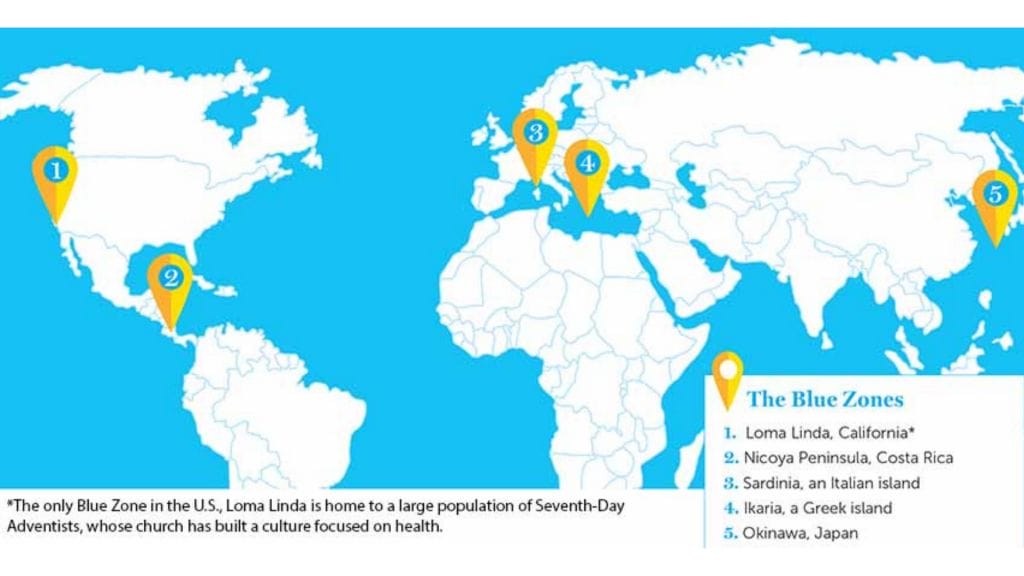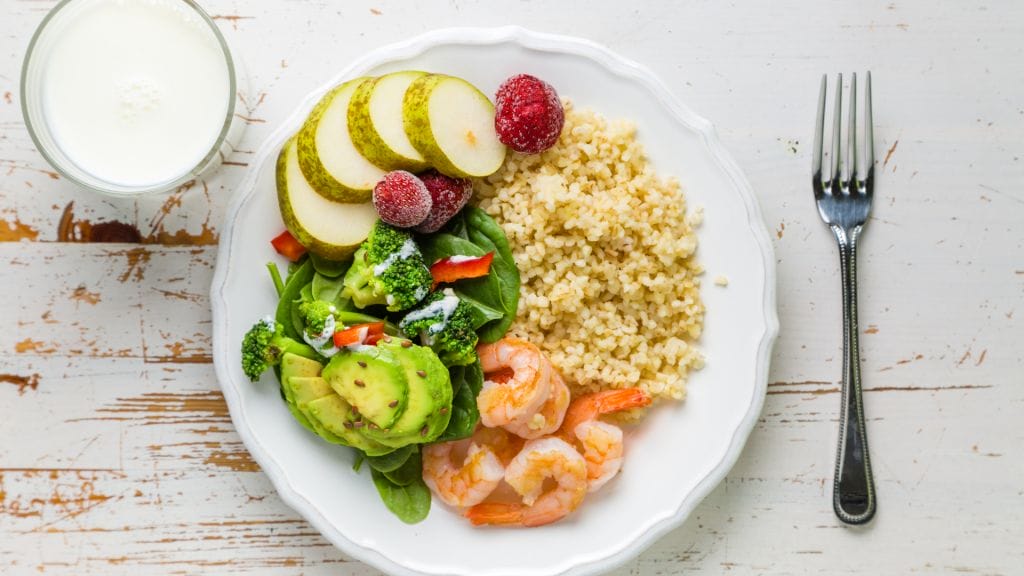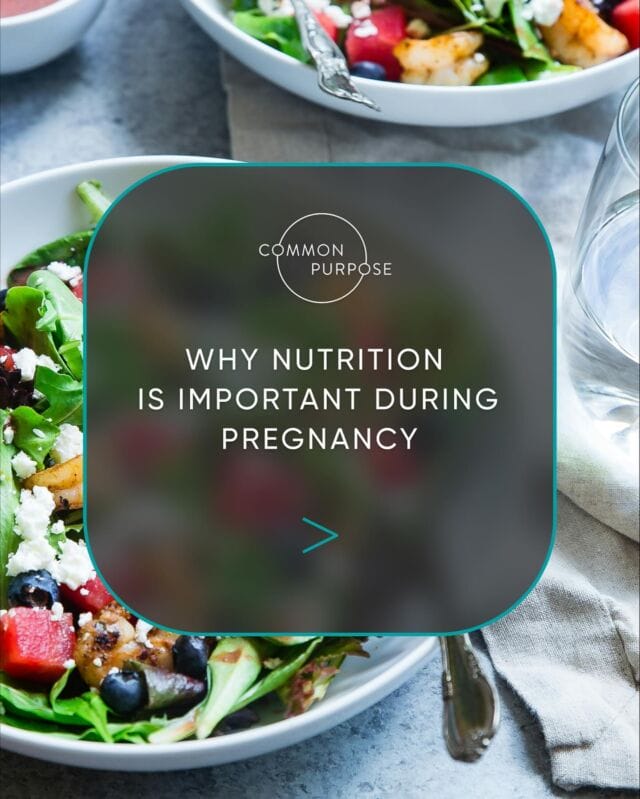Approximately 4 minutes reading time
Brief Article Overview
- According to Gianne Pax and Michel Poulin, we can learn a lot about the diets from what they coined “Blue Zones”.
- Blue Zones are areas are regions of the world where “higher than a usual number of people live much longer than average”.
- Of course lifestyle, culture and genetics contribute to a large degree, but we shouldn’t underestimate the impact that nutritional intake has on health and longevity.
- The common diets consumed in these Blue Zones share certain things in common:
-
- They eat in moderation – These populations tend to eat within a moderate calorie restriction, practice periods of fasting and rarely overconsume.
- Eat mindfully – most of these cultures eat with attention and intention and don’t eat until completely full.
- Eat mostly plants – the majority of their diets derive from plant-based foods.
- Moderate alcohol consumption – alcohol is consumed, but in relatively low quantities, on a semi-regular basis.
Introduction
Food trends around the world, what do populations who live longer healthier lives eat? What do all of these diets have in common? How can we use this advice to guide our own nutritional decisions?
 Common Purpose Team
Common Purpose Team








